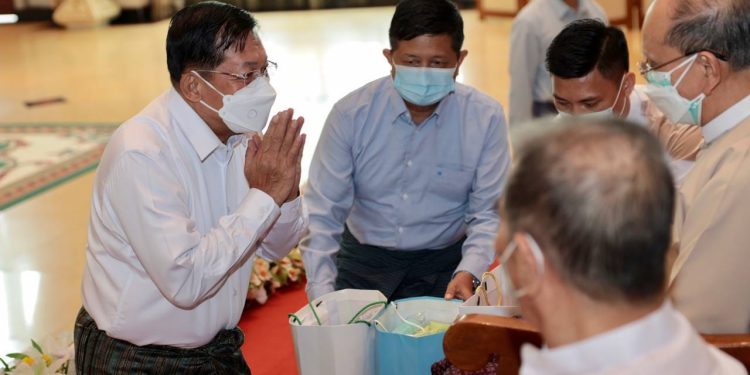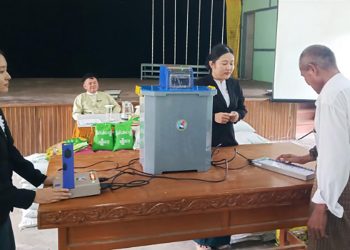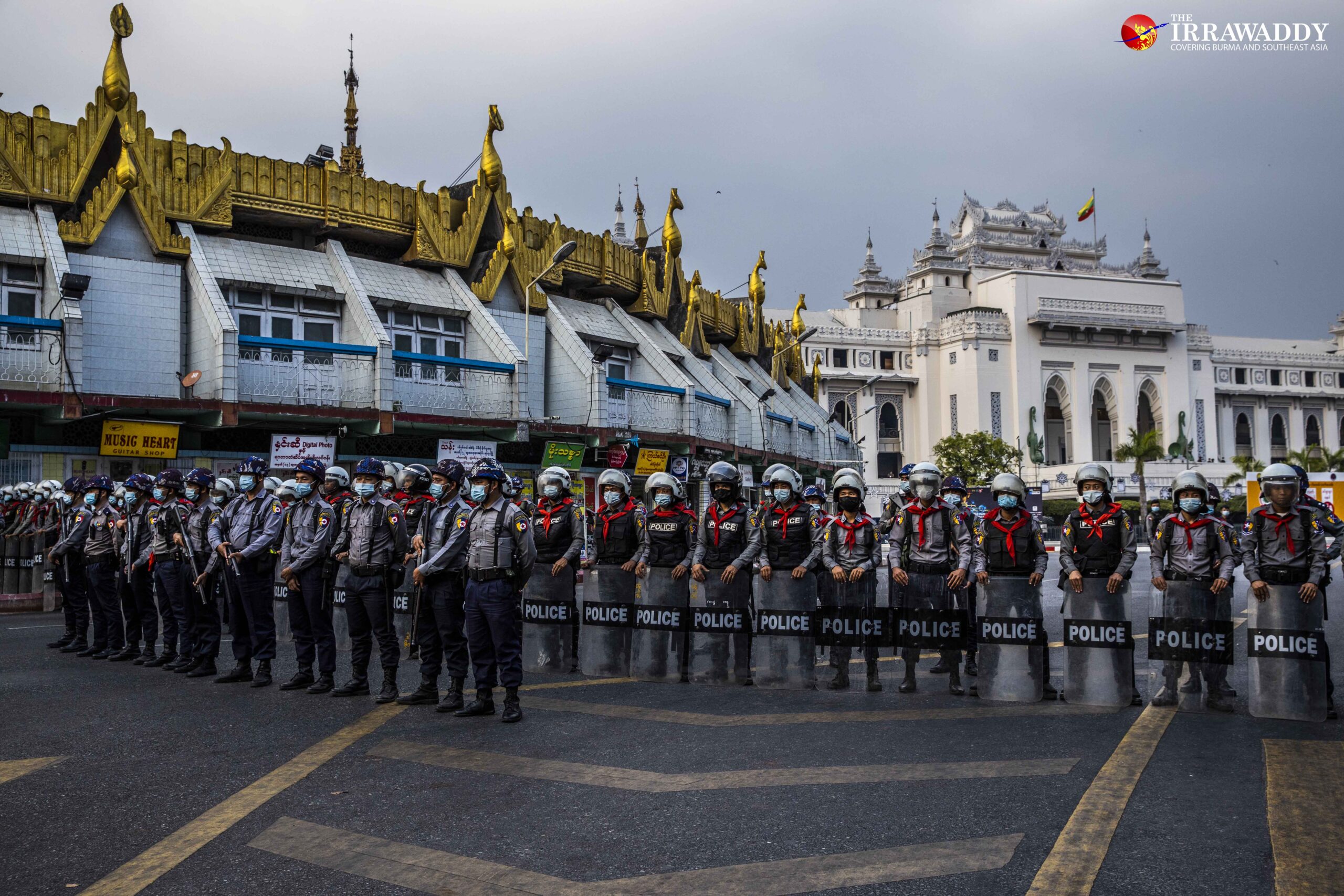
Affected by desertions and casualties, junta eyes police to fill gap
Junta leader Min Aung Hlaing enacted a new law on March 25 making it compulsory for law enforcement officers to fight alongside soldiers on the front lines, while expanding their powers to restrict citizens’ civil liberties.
A provision in the new law states: “At the necessary time, police must be involved in the state’s defense and security affairs.” This means police, who carried out brutal crackdowns on anti-coup protesters, will if necessary have to fight alongside Myanmar’s military, which is suffering heavy casualties on battlefields in central Myanmar and ethnic minority areas.
The new police law also authorizes law enforcement officers to search buildings without a search or arrest warrant, and allows them to take action against anyone who bangs pots and pans, a popular form of collective protest against the regime.
Nearly 7,000 police have joined the Civil Disobedience Movement (CDM) since the coup, according to Myanmar Police CDM channel.
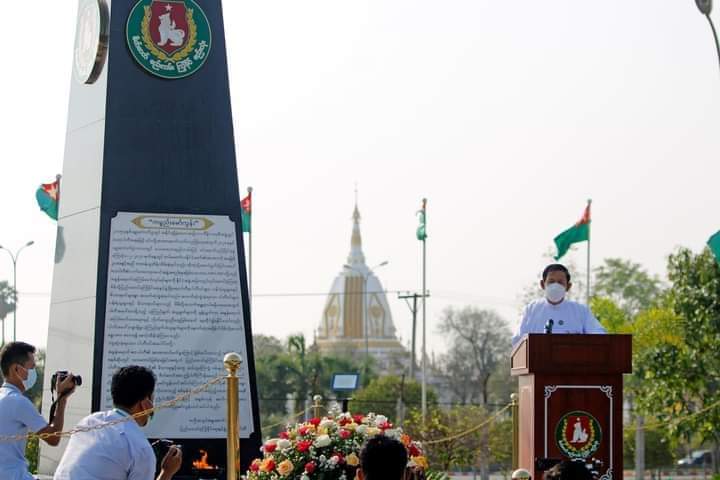
USDP sets up obelisk for slain members
The military’s proxy Union Solidarity and Development Party (USDP) unveiled an obelisk in memory of members who were killed for allegedly acting as informants for the military regime on the country’s resistance movement, at the party’s headquarters in Naypyitaw on March 26.
USPD chairman U Htan Htay, who is himself a former brigadier-general, expressed sorrow that the party members were, as he put it, victimized in the chaos caused by the National League for Democracy (NLD)’s hunger for power. More than 1,300 USDP members have been killed for allegedly being military informants since the coup last year, according to U Than Htay.
The USDP backed by ex-generals suffered resounding defeats to the NLD in both the 2015 and 2020 general elections. Instead of trying to win the support of the people with goodwill and hard work, it only worked hand in glove with the military to smear the NLD, which enjoys popular support.
USDP vice chair U Khin Yi, who is also the immigration minister in the current regime, organized rallies targeting the NLD and the Union Election Commission before and after the military coup in 2021.
Some of the regime’s cabinet members are from the USDP, and many party members actively worked with the regime in its arrest of NLD members and brutal crackdown on anti-coup protesters.
Among those who have contributed cash to the fund to support family members of slain USDP members are the former president of the USDP government, ex-general U Thein Sein, to whom junta leader Min Aung Hlaing paid respects on annual Armed Forces Day on March 27; Min Aung Hlaing’s son Aung Pyae Sone; and their cronies.
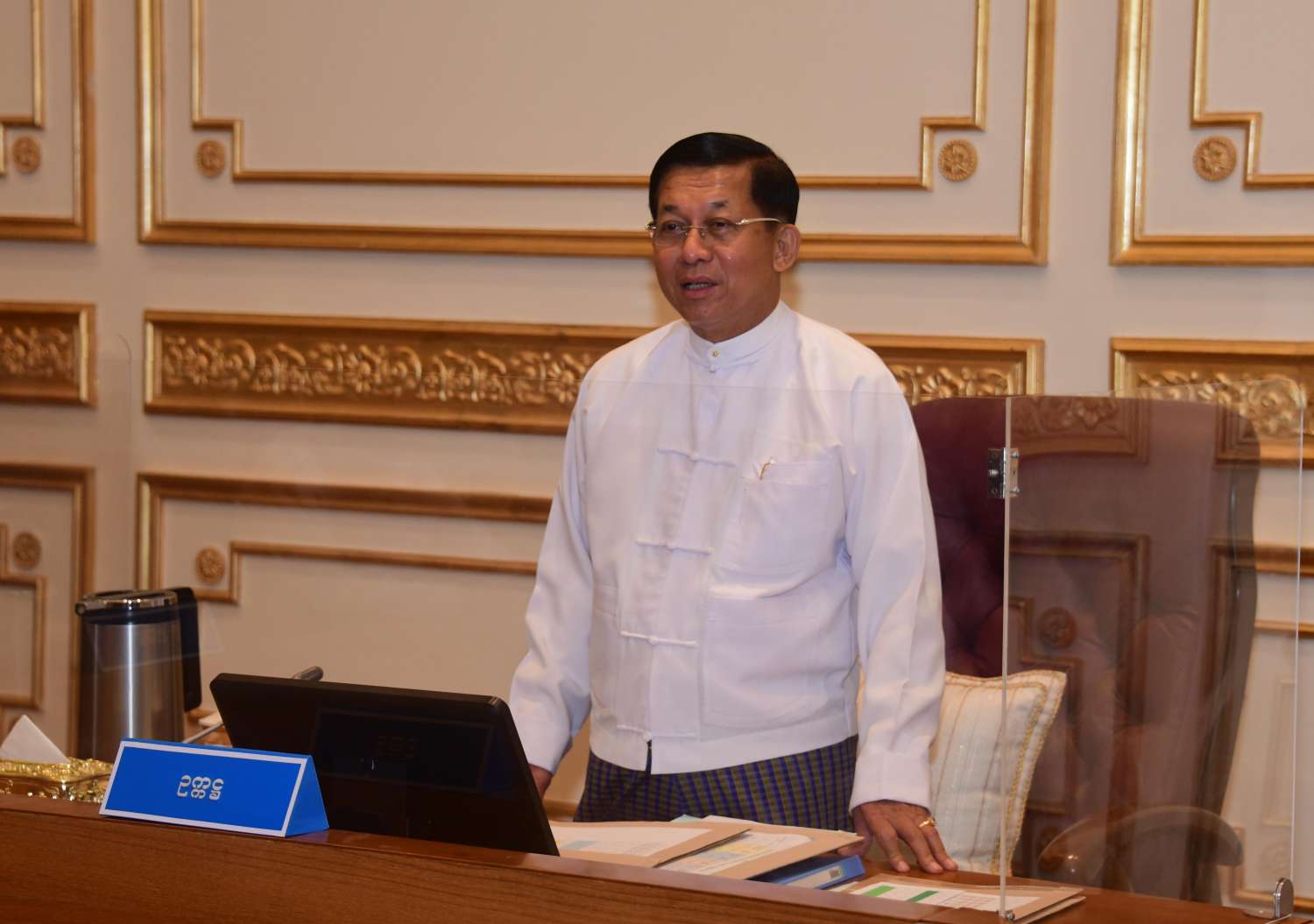
Junta leader says anti-regime forces pose threat to free, fair election
Junta leader Min Aung Hlaing said the non-existence of “terrorist groups” is a precondition for a free and fair election.
The groups must be eliminated to hold a free and fair election without threats and intimidation, said Min Aung Hlaing at a meeting of the State Administration Council, the governing body of the military regime, on March 29.
By terrorist groups, he means the parallel National Unity Government (NUG), its parliamentary body the CRPH, and armed wing the PDF. In his speech on Armed Forces Day on March 27, Min Aung Hlaing also said he would not negotiate, but would wipe out terrorist groups.
However, many democracies have shown their support for and are engaging with the NUG and CRPH. And at least in the eyes of the majority in Myanmar, the PDF are not terrorists, but groups risking life and limb to fight the regime.
It appears, however, that Min Aung Hlaing is better at barking than biting; many junta soldiers are being killed in battles in central Myanmar and ethnic minority regions. The military has been struggling with a mounting number of defectors as well as a drop in recruitment as it becomes an object of popular hatred.
His promise of a free and fair election without threats and coercion is in marked contrast to his coup, which he still can’t justify.
Junta mouthpiece praises Min Aung Hlaing as Myanmar’s savior
In successive periods under military rule, Myanmar’s military has repeatedly used the same narrative to justify its coups—that it has no choice but to take responsibility for the state as the country is on the verge of collapse and falling under the control of foreign powers.
An editorial published in the March 30 issue of the military’s mouthpiece, Myawady Daily, repeated the same narrative, portraying the NLD, which won majorities in both the 2015 and 2020 general elections, as puppets of foreign powers and Min Aung Hlaing as the rescuer.
It argued that military chief Min Aung Hlaing saved the country just as the puppet of foreign powers was about to take control of the state through dishonest means; that the people heartily welcomed Min Aung Hlaing’s rescue; and that a handful of terrorists groups, which are the puppets of foreign powers, are failing day by day.
Myanmar’s military has always labeled democracy and human rights activists as stooges of foreign powers, and destroyers of Myanmar’s culture and religion.
While the entire country is cursing and swearing at Min Aung Hlaing, the editorial claimed the opposite—that Min Aung Hlaing was heartily welcomed by the people. Though the editorial says PDF groups are being subdued day by day, the fact that the regime has to rely increasingly on air raids in Sagaing and other parts of the country because of heavy casualties, that junta soldiers are being forced to cower behind sandbag-fortified outposts in cities including Yangon, and that junta soldiers and police dare not go out alone in public in their uniforms, just indicate the opposite, showing that the Myawady Daily is full of lies.
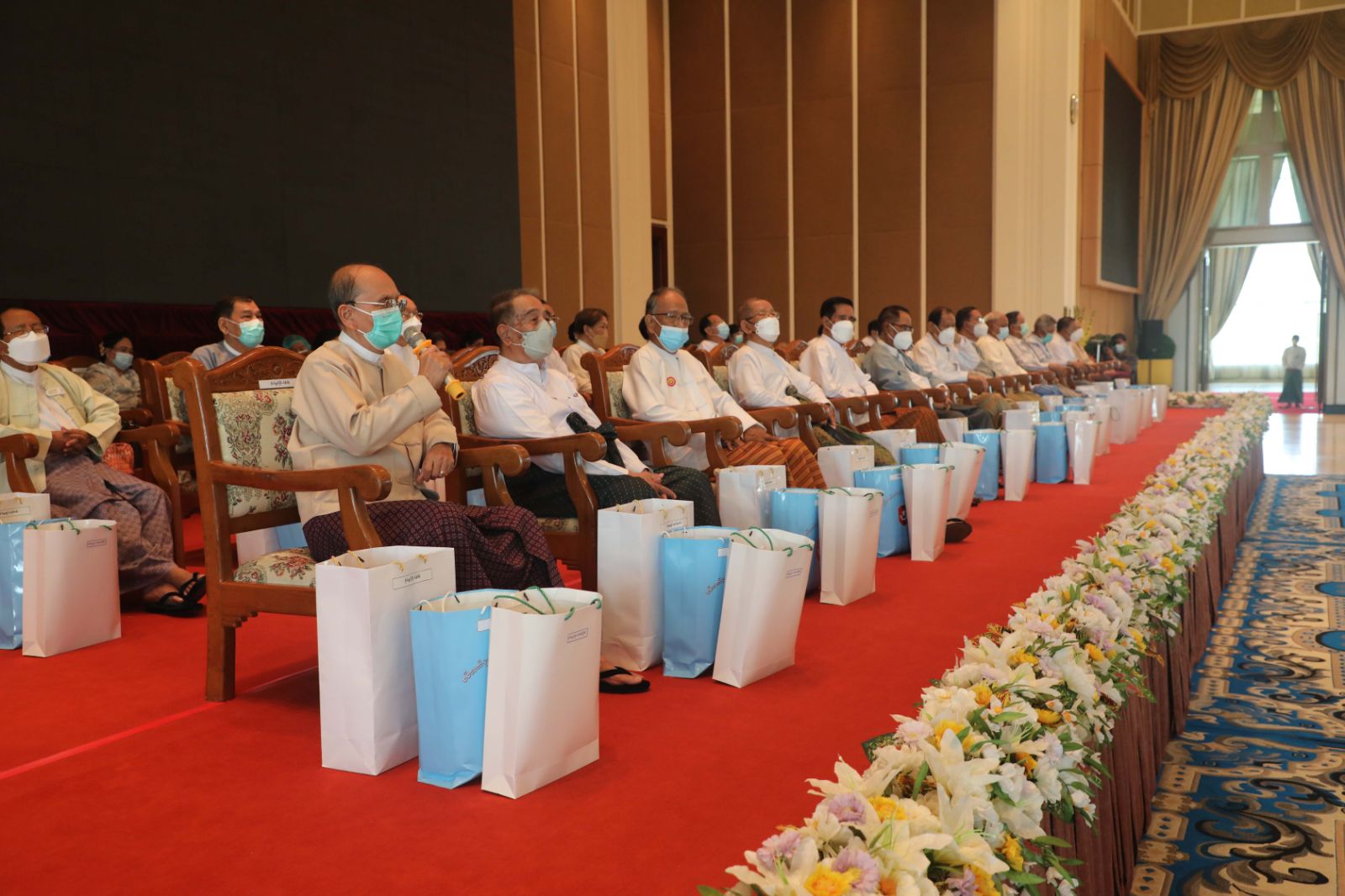
Different generations of generals show solidarity
A ceremony to pay respects to retired military officers was held on March 27 as part of the annual Armed Forces Day. Min Aung Hlaing attended the ceremony for the first time since the coup, and former president and ex-general Thein Sein, who was once considered a reformist, attended the ceremony for the first time.
Twenty-five retired military officers from the eras of former military dictators U Ne Win and U Than Shwe attended the ceremony. Coup leader Min Aung Hlaing respectfully bowed down before the retired military officers. Thein Sein, who served as prime minister in Than Shwe’s regime, and former Major General Thura Saw Phyu, the Air Force chief of staff under Ne Win’s regime, gave advice. What Thein Sein advised on the day is unknown.
The appearance of ex-generals from the previous Myanmar military regime at the Armed Forces Day commemoration and subsequent ceremony hosted by the current regime on Sunday prove that they are all in solidarity with junta leader Min Aung Hlaing, who staged a coup that has so far killed 1,700 people.
The ceremony may well have been a way for Min Aung Hlaing to make a pretense of unity—even if only with the old soldiers—within the army, which has been demoralized in the face of public denunciation and growing defections since the coup.
As they left the hall after the ceremony, Min Aung Hlaing and retired military leaders cordially and respectfully greeted each other, displaying their solidarity. As usual, former military dictator Than Shwe and his deputy Maung Aye, who are Thein Sein’s neighbors in Naypyitaw, did not attend the ceremony.
You may also like these stories:
Myanmar Junta Kills 10 Children in a Week
Junta Demolishes Homes in Striking Myanma Railways Town
Witness Disputes Myanmar Junta Allegation of Suu Kyi Power Abuse


